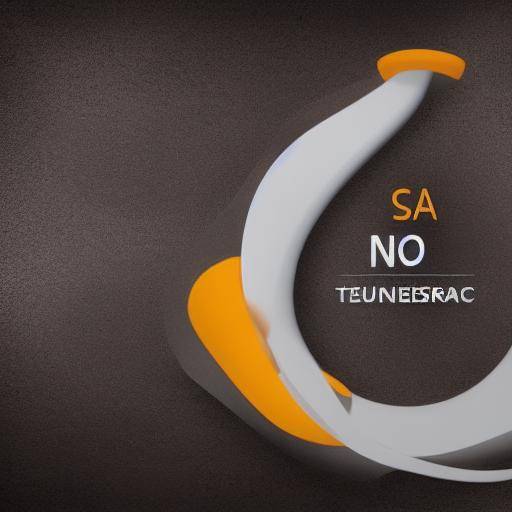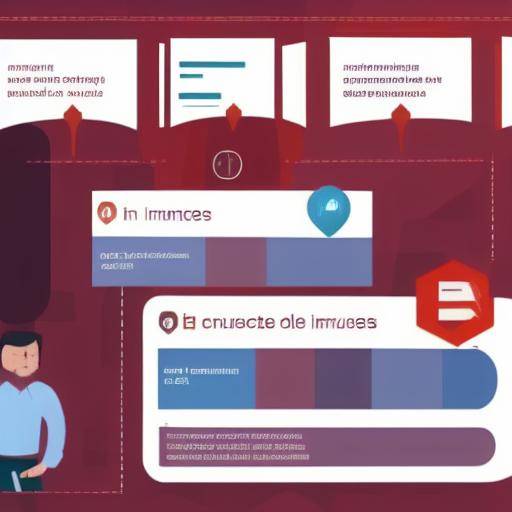
Introduction
Self-esteem is a vital element in people's lives. It affects the way we relate to others, how we face the challenges and how we value ourselves. A fundamental aspect of self-esteem is the ability to say "no" when necessary. In this article, we will explore the relevance of self-esteem in the ability to deny situations that do not benefit us, as well as the influence of personal confidence in this process. Understanding the importance of maintaining healthy self-esteem by saying "no" not only strengthens our relationships and well-being, but also promotes greater emotional and mental balance.
History and Background
Self-esteem has been the subject of interest since ancient times, with philosophers and thinkers exploring the complexities of self-love and personal valuation. Throughout history, different cultures and traditions have influenced how people perceive their value and how they relate to others. It is important to understand these historical influences to contextualize the importance of self-esteem in modern life.
Historical Influences
- Greek Philosophy: Philosophists like Socrates and Aristotle discussed the importance of self-knowledge and self-love for a virtuous life.
- Religious traditions: Many religions, including Buddhism and Christianity, have taught the importance of self-acceptance and self-respect.
- Modern Psychology: Psychologists like Carl Rogers and Abraham Maslow have highlighted self-esteem as a crucial component for personal development and self-realization.
Detailed Analysis
Self-esteem influences our ability to set healthy limits on our personal and professional relationships. We will explore the challenges facing people with low self-esteem by saying "no," as well as the benefits of having confidence to defend our needs.
Low Self-esteem Challenges
- Fear of the Reject: People with low self-esteem may fear that saying "no" leads to rejection or loss of important relationships.
- Guilt Feeling: You may feel guilty by putting your own needs above others.
- Difficulty Prioritizing: Low self-esteem can make it difficult to identify your own needs and priorities.
Benefits of High Self-esteem
- Strengthening in Relations: To say "no" when necessary can strengthen relationships by establishing clear and respectful limits.
- Stress reduction: Avoiding excessive engagement reduces stress and improves overall well-being.
- Personal empowerment: Feeling able to say "no" increases confidence and self-determination.
Comprehensive review
Understanding how self-esteem and personal trust impact our ability to deny ourselves to situations that do not benefit us can help us develop skills to establish healthy limits.
Strategies to Say "No"
- Self-knowledge: Knowing our personal needs and limits is crucial to say "no" effectively.
- Assertive Communication: Learn to express our limits clearly and respectfully.
- Practice and Reflection: Practice saying "no" in small situations to gain confidence and reflect on experiences to improve.
Comparative analysis
We will explore the relationship between self-esteem, the ability to say "no" and personal trust. We will identify similarities, differences and how these elements can work together to strengthen our ability to meet our needs.
Autoestima vs. Personal trust
- Autoeste: It is the value we give ourselves.
- Personal trust: It is safety in our skills and decisions.
Synergies
- High self-esteem fosters personal confidence, facilitating the ability to say "no."
- The practice of saying "no" reinforces both self-esteem and personal trust.
Practical Tips and Concrete Actions
We offer practical strategies to develop and maintain a healthy self-esteem by refusing situations that do not benefit us.
Practical Tips
- Identify Priorities: Clarify what is important to you and why.
- Establish Limits: Define clear limits in your personal and professional relationships.
- Practice the Assertivity: Use assertive communication techniques to express your limits.
- Reflect Regularly: Evaluate your experiences and adjust your strategies as needed.
Perspectives of Industry and Expert Reviews
We will seek the opinion of experts who can provide valuable information on how self-esteem and personal trust influence the ability to say "no."
Opinions of Experts
- Dr. Jane DoeClinical Psychologist: "The ability to say 'no' is essential for emotional well-being and mental health. Self-esteem plays a crucial role in this ability. "
- John Smith, Life Coach: "Learning to say 'no' not only protects our time and energy, but also sends a clear message about our self-assessment and personal limits."
Case Studies and Real Life Applications
We will analyze case studies that demonstrate the practical application of a strong self-esteem by saying "no" in different personal and professional situations.
Prácticos examples
- Labour environment: An employee who sets clear limits to avoid overwork and maintain a healthy balance.
- Personal relations: A person who learns to say "no" to social commitments that do not benefit him, improving his emotional well-being.
Future Trends and Predictions
We will explore emerging trends related to self-esteem, the ability to say "no" and personal trust, and offer predictions based on data and expert opinions.
Emerging trends
- Growing Focus on Mental Health: Increased awareness of the importance of self-esteem in mental health.
- Training in Assertivity: Programs and workshops that teach assertive communication skills.
Future predictions
- Integration in the workplace: More companies will incorporate self-esteem and assertiveness training into their professional development programs.
- Support Technology: Digital applications and tools to help people practice and improve their skills to say "no."
Conclusions and FAQs
Conclusions
We summarize the key points of the article, highlighting the importance of a healthy self-esteem by saying "no" and offering a solid conclusion that encourages further exploring the topic.
Frequently asked questions
- Why is it important to have a healthy self-esteem saying "no"?
- Having a healthy self-esteem allows us to establish clear and respectful limits, protecting our emotional well-being.
- How does the lack of personal confidence affect the ability to reject unwanted situations?
- Lack of trust can lead to accepting situations harmful to fear of rejection or conflict.
- What practical strategies can be used to strengthen self-esteem by saying "no"?
- Identify priorities, set limits, practice assertivity and reflect regularly.
- Can self-esteem influence our personal and professional relationships by denying us something?
- Yes, establishing clear limits improves the quality of relationships and promotes mutual respect.
- What is the importance of establishing healthy limits in everyday life?
- Healthy limits protect our time and energy, allowing us to focus on what really matters.
- How can we foster positive self-esteem both in ourselves and in others?
- Practice self-acceptance, recognize our achievements and support others in their efforts to establish healthy limits.
Understanding the importance of self-esteem by saying "no" is crucial for emotional well-being and personal development. Maintaining healthy self-esteem strengthens our ability to set healthy boundaries and defend our needs, promoting more balanced and satisfying relationships.





























